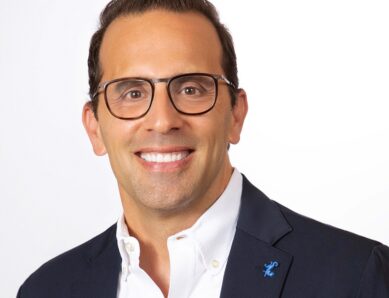I met a recent graduate the other day, who told me that her friends were sending out résumés for every advertised role they could possibly see themselves doing. Hundreds of them – scattershot.
It brought to mind my recent Expert Interview with organizational psychologist André Martin, whose book “Wrong Fit, Right Fit” encourages people to take exactly the opposite approach when developing their careers.
Writing With Our Dominant Hand
In his view, for a long-lasting, fulfilling experience at work, it pays to think carefully before applying for a job. That gives us a better chance of finding an opportunity that actually fits – which he says feels like writing “with our dominant hand” as opposed to “our non-dominant hand.”
This matters for employers and companies as much as for candidates, Martin told me – and now more than ever. Here’s a clip from our Expert Interview. (You can stream the audio clip below or read a transcript here.)
Martin’s book is a practical guide to help people fit at work, not just “fit in.” Because there’s a difference, Martin says.
Fit feels natural and authentic, while “fitting in is when you change the way you do work or the way you show up at work in an effort to be successful, be seen, or belong.” He calls this “wrong fit,” and it feels “like a slog.”
Self-Reflection Is Key for Finding Fit
To avoid wrong fit, Martin recommends embarking on eight “excursions,” which he lays out in his book. These are in-depth exercises exploring personal values, motivation, goals, attributes, and more. After working through these excursions, you’ll be better placed to find a job and workplace that fits.
“When talent talks about wrong-fit experiences, the thing they wish they would have done almost universally was more self-reflection before they started looking for a job,” Martin observes. “So the excursions were really meant to get us to pause, take three steps back, open our eyes really wide, and ask the question of ‘What are we looking for beyond a job title?'”
The Story of a Wrong-Fit Workplace
This reminds me of a former job where I was uncomfortable from the minute the workday started to the second it ended, every single day. I was a reporter for an international newswire based in a Latin American capital city. I’d been approached to apply for the job, and I took it partly because I felt flattered.
I had done none of the self-reflection advocated by Martin, and from day one, it was clearly a wrong fit in all the obvious metrics: how people worked together, solved problems, prioritized, managed time, and measured progress.
Among my worst memories of this job was the pointless presenteeism. All the reporters were required to be at their desks for 10 hours a day, on rolling start times of either 7 a.m., 8 a.m. or 9 a.m. We were covering financial markets, so most of the reporting had to be done when markets were open. When they were closed, there wasn’t a whole lot to do, but we had to be there anyway.
One of my colleagues spent hours on the phone to friends most days, bending their ears about how she was still at her desk late into the evening, or there super early. She implied she was ludicrously busy, mistaking being at work with actually working.
As well as the schedule constraints, there was a presumption of incompetence that I never understood. Once, one of my colleagues was proofing an article I’d written, and he mused aloud: “You really need to make fewer mistakes, Rachel.”
Startled, I asked him for some examples in the article he was reading. He could only point to a single typo. I still don’t know how this gave the impression of multiple errors.
Know Your Motivation
One of Martin’s excursions to find fit helps you identify the main driver for your career. He asks: are you motivated by craft, company or cause?
My job at the financial newswire would have been a great fit for someone who wanted to have a global media company on their résumé, or someone who was passionate about financial markets and their influence on economic growth.
But my primary motivation is craft, so for me, this job was a terrible fit. There was no scope for me to develop my skills, and my confidence took a battering. I left within a few weeks, with a huge sigh of relief.
My next role was as bureau chief of a U.S.-based business magazine, based in the same city. I could work from home, keep my own hours, and write articles on whatever I thought would interest the readers. My colleagues valued what I brought to the company, and together we produced some good work.
A bit of self-reflection before applying for a job can save a lot of hassle and heartache, and lead to a much better, longer-lasting fit, with zero need to fit in.
Listen to the Full Story
You can listen to or read my full 30-minute interview with André Martin if you’re a Mind Tools member or if your employer is a Mind Tools for Business licensee.
If you’re not already a member, join Mind Tools now to gain unlimited access to 2,400+ resources, including our back catalog of 200+ Expert Interviews. Or you can find out more about Mind Tools for whole organizations, big or small, by contacting our enterprise team.
Meanwhile, catch more excerpts and insights from my guests by searching our Expert Interview blog topic.



